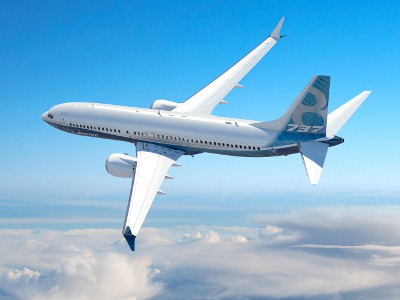

K63803
But now is probably not the best time for investors to be climbing aboard Boeing (Boeing Stock Quote, Chart, News, Analysts, Financials NYSE:BA), says portfolio manager JoAnne Feeney, who thinks the timeline return to growth for the aerospace giant may be longer than expected.
“Boeing has obviously had a lot of trouble. They’ve hopefully fixed the 737 Max, [but] the challenge for Boeing right now is that the airlines have an awful lot of planes and so while we do expect their pickup in orders to continue and we’ve seen some positive signs there, it’s not one of our favourite plays in industrials and not one of our favourite recovery plays,” says Feeney, partner at Advisors Capital Management, who spoke on BNN Bloomberg on Friday.
Boeing’s share price has been on the rise over the past year, taking the stock from a depths-of-the-pandemic low last March of $95 per share all the way up to around $230 where it currently trades.
That’s pretty much par for the course for many names in the air travel space, where stocks from Airbus and Lockheed Martin to American Airlines and Air Canada have seen similar rebounds over the past 12 months.
And while passengers will undoubtedly start filling up seats again as COVID-19 vaccines win their victories worldwide, there’s less clarity on how big and how fast that return will be. That’s doubly true in the lucrative business travel sector where companies from here to Pittsburgh have been swearing up and down that they’ll be sending employees abroad in far fewer numbers.
For Boeing, poring over its order backlog will become an even more widespread practice as investors look for signs of returning growth for the plane maker. Boeing reported its first quarter 2021 earnings last month, which while sporting a worse-than-expected loss per share saw Boeing’s backlog grow (or, really, stop shrinking) for the first time in a while.
Boeing’s Q1 2021 showed a topline down ten per cent year-over-year to $15.22 billion and a loss of $1.53 per share, where analysts had expected $15.02 billion in revenue and a loss of $1.16 per share. But the company added net new orders of 76 planes, a reversal of the trend over the past year, with the company’s total backlog at the quarter’s end standing at $363.85 billion compared to $363.40 billion a year earlier.
Boeing’s unfilled orders are currently 4,980 planes, the bulk of which are 737’s. By comparison, the company’s Commercial Airplanes backlog stood at over 5,000 planes one year ago, at over 5,600 airplanes two years ago and at over 5,800 three years ago.
“While the global pandemic continues to challenge the overall market environment, we view 2021 as a key inflection point for our industry as vaccine distribution accelerates and we work together across government and industry to help enable a robust recovery. Our balanced commercial, defence, space and services portfolio continues to provide critical stability for our business – and we remain focused on safety, quality and integrity as we deliver on our customer commitments,” said Boeing president and CEO Dave Calhoun in the first quarter 2021 press release.
But even with the backlog concerns, Boeing remains half of a decades-long duopoly in commercial aerospace along with Airbus and it’s likely still a good long-term bet, says Feeley.
“If you’re a very long-term holder it could be a good place to be just buy it and forget it for a while,” Feeley said. “Structurally, they have fixed operations over there so eventually that one should see a good recovery, but it might take a little longer.”
Boeing’s share price has been dipping over the past couple of months, a trend that wasn’t aided by the earnings miss in late April’s Q1.
Feeley’s sentiment was echoed by portfolio manager Jim Lebenthal of Cerity Partners, who spoke on CNBC on April 28 after Boeing’s first quarter, saying, “The earnings were terrible but we knew they’d be terrible. I think the reason the stock is down is because the Street wanted more clarity on meeting 787 delivery expectations for the rest of this year and they didn’t get that.”
“But that’s a question of how fast the recovery is going to occur, not a question of whether Boeing is going to recover, and that’s the kind of normal give-and-take in a stock I can live with — I’m not worried about the pace of this being a month or two longer than the Street expected. The recovery is on track,” Lebenthal said.
Leave a Reply
You must be logged in to post a comment.





 Share
Share Tweet
Tweet Share
Share




Comment